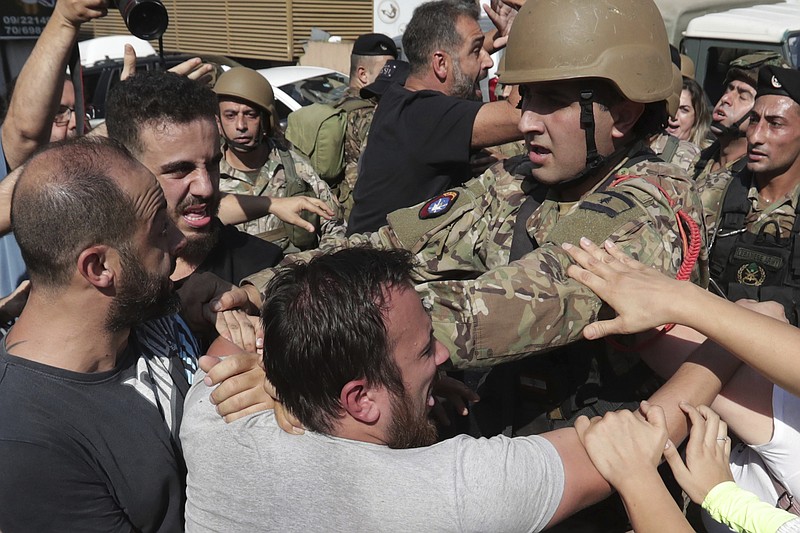BEIRUT (AP) — Lebanese troops deployed Tuesday in different parts of the country to reopen roads and main thoroughfares closed by anti-government protesters faced resistance in some areas, leading to scuffles.
In most places, protesters withdrew peacefully as the troops moved in. But in Beirut’s northern suburb of Zouk Mosbeh, a scuffle erupted when some demonstrators refused to move away from the main highway linking Beirut with northern Lebanon.
Several protesters were detained by troops. One protester, an older man, fainted and was rushed away in an ambulance; the Lebanese Red Cross later said he was in stable condition.
Human rights activist Wadih al-Asmar said dozens were detained during the scuffles north of Beirut.
Later Tuesday, Moody’s ratings agency downgraded the government of Lebanon’s issuer ratings to Caa2, saying it remains on review for downgrade. The agency said the downgrade reflects the increased likelihood of a debt rescheduling or other liability management exercise that may constitute a default. Moody’s downgraded Lebanon’s issuer ratings to Caa1 in January, but had maintained it there after protests broke out Oct. 17.
It estimated Lebanon has a foreign exchange buffer of about $5 billion-$10 billion, and that would likely to be used to service external debt payments.
Anti-government protesters have been holding demonstrations demanding an end to widespread corruption and mismanagement by the political class that has ruled the country for three decades. The protesters have paralyzed Lebanon by closing roads inside cities as well as major highways. The protesters rejected an economic reform plan, demanding deeper changes to the government and election laws.
“We are not defying the army but we want our demands to be met,” hairdresser Elie Abdu, 29, said in Zouk Mosbeh. “We want a technocrat government, we want the poor to have food and medical care.”
The protesters have been demanding the new Cabinet not include politicians but consist of experts who can work on getting Lebanon out of its economic crisis.
Also in Beirut, in the nearby area of Jal el-Deeb, troops chased protesters who were closing a major road, running after them into streets until they rushed into a church and hid inside it.
Troops also opened the highway linking Beirut with southern Lebanon and several major avenues in the capital.
The protesters who have been closing roads for more than two weeks have started holding sit-ins inside and at the entrances of state-run companies and institutions, including the country’s two cellular telephone companies as well as the electricity company.

